
ABUJA, NG, Oct 27, 2022 - (ACN Newswire) - As stakeholders in the Digital Economy sector from both within and outside Nigeria gathered in Abuja to brainstorm on the path to a sustainable digital economy in the country, the Federal Government (FG) declared that it would no longer accept importation of any digital technological product or service into the country "until and unless the country is convinced that capacity to develop such product and service is not readily available in the country."
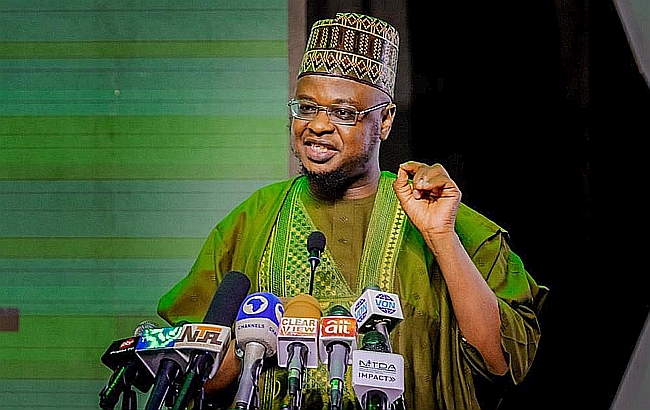 |
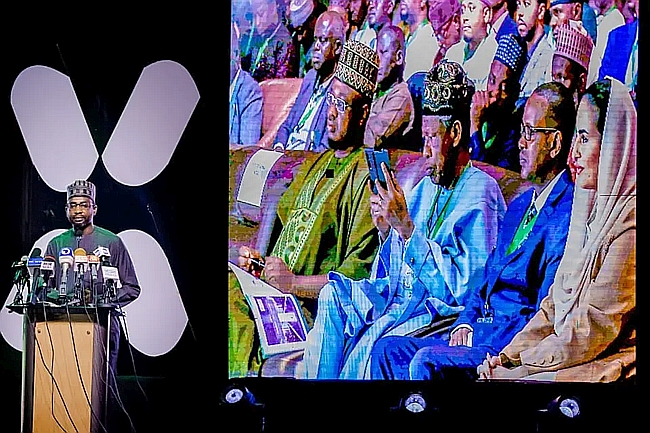 |
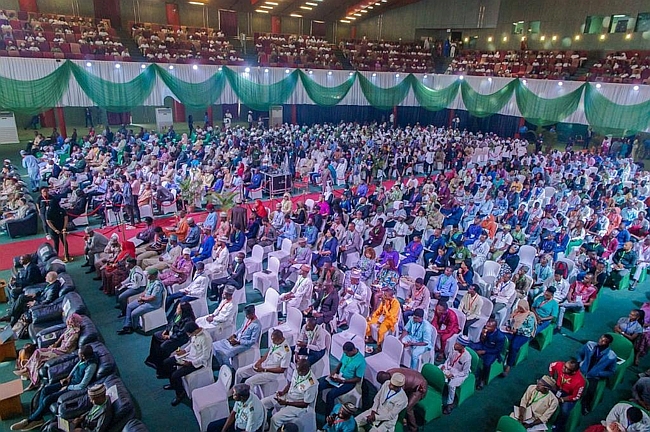 |
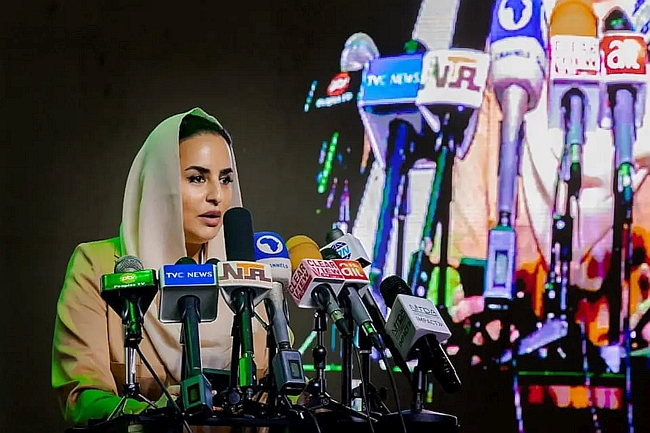 |
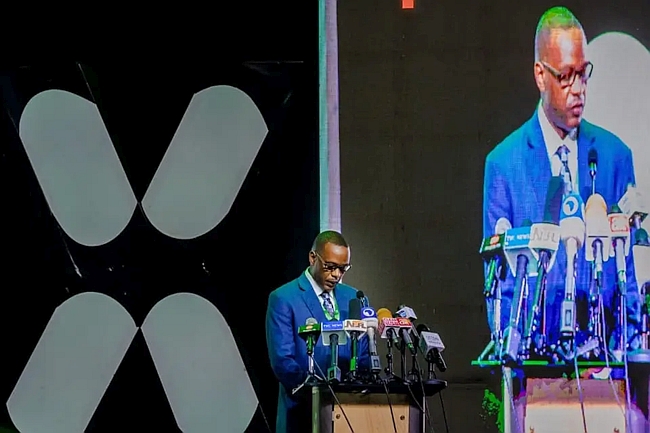 |
Prof. Isa Ali Ibrahim (Pantami), the Minister of Communications & Digital Economy, made the declaration during a special address at the Digital Nigeria 2022 Conference, Exhibition and Awards in Abuja (Oct 25~27). Formerly known as the eNigeria Conference, the annual event was re-branded as Digital Nigeria to expand its scope in line with the core objectives of the National Digital Economy Policy and Strategy (NDEPS).
Minister Pantami holds that wisdom behind the stoppage of importation of digital technological products and services gives effect to Executive Orders 003 of May 2017, and 005 of February 2018, which support "Local content procurement by ministries, departments and agencies of the Federal Government of Nigeria", and the "Planning and execution of projects, and promotion of Nigerian content in contracts and science, engineering and technology", respectively.
He stated further that "even in the employment position that is publicized, as long as there are Nigerians that have the capacities to take up the challenges, it is not allowed for you to bring somebody from outside the country, except in an agreement transferring knowledge, and 40% of our products and services must be retained for Nigerians."
The minister disclosed that his sector has been performing with increasing creditably in the last three years, making it the fastest growing sector and the highest contributor to Gross Domestic Product in the country. "The Digital Economy has in recent years recorded three unprecedented records. For example, contributing18.44% of GDP in the last quarter according to the National Bureau of Statistic."
Listing record achievements for the sector, Prof. Pantami further expressed that his Ministry had scored high grades in each of the eight ministerial deliverables he signed with President Muhammadu Buhari in 2019. He noted that his Ministry scored a very strong 173.86% average across the eight.
The scores in each deliverable were recorded as: implementation of broadband connectivity -134%; deployment of 4G across the country - 127%; digitalising government functions and processes - 99%; development and implementation of a National Digital Economy Policy and Strategy - 103%; implementation of a Digital Identity Programme - 86%; improvement and optimisation of revenues from all operators and licensees in agencies under the Ministry's supervision - 594%; active collaboration with private sector to create jobs - 111%; empowerment of citizens - 137%.
According to the Minister, the sector used to contribute an average of N51 billion (approx. US$118 million) quarterly to the government's coffer, but in the last three years, quarterly remittance has grown to N408 billion (approx. US$ 935 million). "And you cannot appreciate this until you know how difficult it is to generate funds for government. We remit all that we generate to the government, while others spend without generating," he noted.
He expressed the vigor in implementation of the various pillars of NDEPS, facilitating the unprecedented achievements the sector is recording since the policy was approved in October 2019. He listed the eight pillars to include: Developmental Regulation; Digital Literacy and Skills; Solid Infrastructure; Service Infrastructure; Soft Infrastructure; Digital Service Development and Promotion; Digital Society and Emerging Technologies; and Indigenous Content Promotion and Adoption.
The Minister revealed that the under the Service Infrastructure pillar, IT project clearance alone has saved the Federal Government over N44 billion in the last year, with the clearing of 1,600 projects which have to do with the automation of government processes in order to save funds, improve precision and accuracy, and promote accountability.
He said, "In order to simplify the implementation of each of the pillar, we developed other implementation policies under each pillar; under some pillars we have developed three to four policies. Within the last three years, we have developed 19 national policies and at least 17 of them are being implemented today - and this is unprecedented."
While noting the Ministry's achievements in capacity building, Prof. Pantami disclosed that 863,232 Nigerians have been trained on cutting edge and highly demanded digital skills, adding that the training identified a global vacuum in the digital sector, and focused on the provision of skills to citizens such that they could fill the vacuum. In addition, according to the Minister, over 2,000 IT centres have been established across the country.
He said the many regulatory instruments developed by his Ministry and its parastatals led to the initiation and ultimate passage of the Nigeria Start-Up Bill by the National Assembly, signed into law by President Muhammadu Buhari last week to become the Nigeria Start-up Act.
While commending President Buhari and National Assembly for the speedy passage and assent, the Minister described the legislation as "organic, because inputs were sought from the Start-Up ecosystem, and all its challenges are accommodated." He said passage of the Bill has attracted global commendation, noting the Massachusetts Institute of Technology, which indicated it would be learning from Nigeria's experience.
Kashifu Inuwa, Director General, National Information Technology Development Agency (NITDA), giving the opening speech at Digital Nigeria 2022, expressed optimism that with the several initiatives the ministry and all its parastatals are putting in place, Nigeria can become the global talent supplier in the tech ecosystem in no distant time.
He said Nigeria is doing a lot in trying to position itself in the area of talent development because technology has two components; the technology, and the people side, or IT talent, which is abundant in Nigeria. According the Director General, if Nigeria could harness her talents in the tech ecosystem, it would need nothing else "because our talent alone is estimated at 8.5 trillion USD market value, and Nigeria has the capacity to fill the global talent gap."
He assured that, "We have done it in the sport industry. We have done it in the music industry, and we are going to do it in the tech industry," adding that the country would also explore how to use Emerging Technologies to create and capture value from the tech ecosystem.
While recalling that the Minister recently signed a Memorandum of Understanding with Microsoft Corporation to train 5 million Nigerians, the NITDA boss disclosed that there were "several other initiatives, like the training of 1 million developers in the next 18 months, geared towards positioning Nigeria to bridge the global talent gap."
He described digital transformation and sustainability as increasingly important and intertwined phenomena that are full of promises and pitfalls. "To achieve sustainability, you need strategy to realise the promises while avoiding the pitfalls," he observed.
Inuwa noted that the Minister of Communications & Digital Economy, Prof. Isa Ali Ibrahim (Pantami) has designed an approach to succeed in the digital economy sector. The Minister uses a three part gain : unleash the creative offence to position Nigeria as a leader in the digital economy, initiatives to strengthen the midfield in terms of processes, policies and legal framework, and initiatives to tide up the defense which is to explore technology to enhance processes and services which include the e-government master plan, and initiatives around infrastructure to connect the unconnected.
On the recently passage of the Nigeria Start Up bill, now an Act after the President's assent, the Director General averred that the Act would provide legal instrument for Nigeria to become a start-up nation. "With the president assenting to the bill, it will help us position ourselves to disrupt and not to be disrupted because it is through start-ups you can come up with disruptive ideas with innovations to create Innovation driven enterprises, and we are implementing several initiatives to achieve that.
"We have an MIT REAP programme, we are working with JAICA, and we have several other initiatives aimed to strengthen the ecosystem, that is why Nigeria's ecosystem is the most vibrant ecosystem in all of Africa. Out of seven unicorn companies in Africa, five originated from Nigeria and we have three more to join soon," he added. Inuwa however solicited the cooperation of others because digital transformation cannot be achieved in silos.
"We believe digital transformation needs collaboration. We need everybody on board. Government has its own roles; to create policies, to intervene in terms of regulations and legal framework and you all have your own roles to play. Academia produces the human capital; we need the innovators to come up with innovative ideas, we need the venture capitalists to invest, and we need you, our guests from abroad, to learn from your experience.
"At the end of this, we are looking forward to ideas that will promote what government is doing so that Nigeria can have a sustainable digital economy," the NITDA boss concluded.
Gambia's Minister of Communications and Digital Economy, His Excellence, Mr. Ousman A. Bah, a keynote speaker at the conference, enjoined African countries to embrace digital transformation stating that "digital transformation required the need for visionary leaders that have purpose and purpose that has destiny and destiny has address."
He noted that adoption of blockchain technologies would speed up the continent's drive for digital transformation which will promote other emerging technologies such as data protection, cyber security, digital inclusion and entrepreneurship.
While acknowledging that Blockchain has many benefits such as financial inclusion and nurturing of small scale businesses, he stated that the technology comes with its challenges, and there are significant challenges to overcome before the benefits of Blockchain could be realised. According to Mr. Bah consumer protection and system network risk can slow down the pace being recorded.
He noted that Central banks in African countries need to be proactive to explore the technological advancement that Blockchain offers to promote digital inclusion advising that many countries need to embrace financial inclusion. "Countries in Africa are at the different stages of progress when it comes to allowing financial privacy from other sectors like telecom sector other than the banks."
In her keynote address, the Secretary General of the Digital Cooperation Organisation (DCO) Deemah A. Alyahya sued for bridging the gender digital divide that exists, maintaining that access to information should be all inclusive. "We need to promote digital inclusion and ensure that we bridge the digital gender divide that is prevailing because women occupy very important roles in our journey toward digital transformation."
In his goodwill remark, the Minister of Information and Culture Alhaji Lai Muhammed commended the ministry and parastatals under the leadership of Prof. Pantami for deepening the digital inclusion in the country through many of their initiatives. He stated that the sector remains the fastest growing sector which has been helping the nation in its drive for economic diversification.
Other dignitaries at the conference were the Chairman, Senate Committee on ICT and Cyber Crime, Senator Yakubu Oseni, representatives of ministers of Special Duties, the Minister of State for Health, Service Chiefs, captains of industry, IT enthusiasts, tech start-ups and innovators.
A highlight of the event was the unveiling of a book titled "Isa Ali Ibrahim Pantami: Advancing Nigeria's Drive Toward a Digital Economy", published in honour of the Minister.
By Lukman Oladokun in Abuja.
Digital Nigeria 2022 International Conference, Oct 25-27.
Copyright 2022 ACN Newswire. All rights reserved. www.acnnewswire.com













